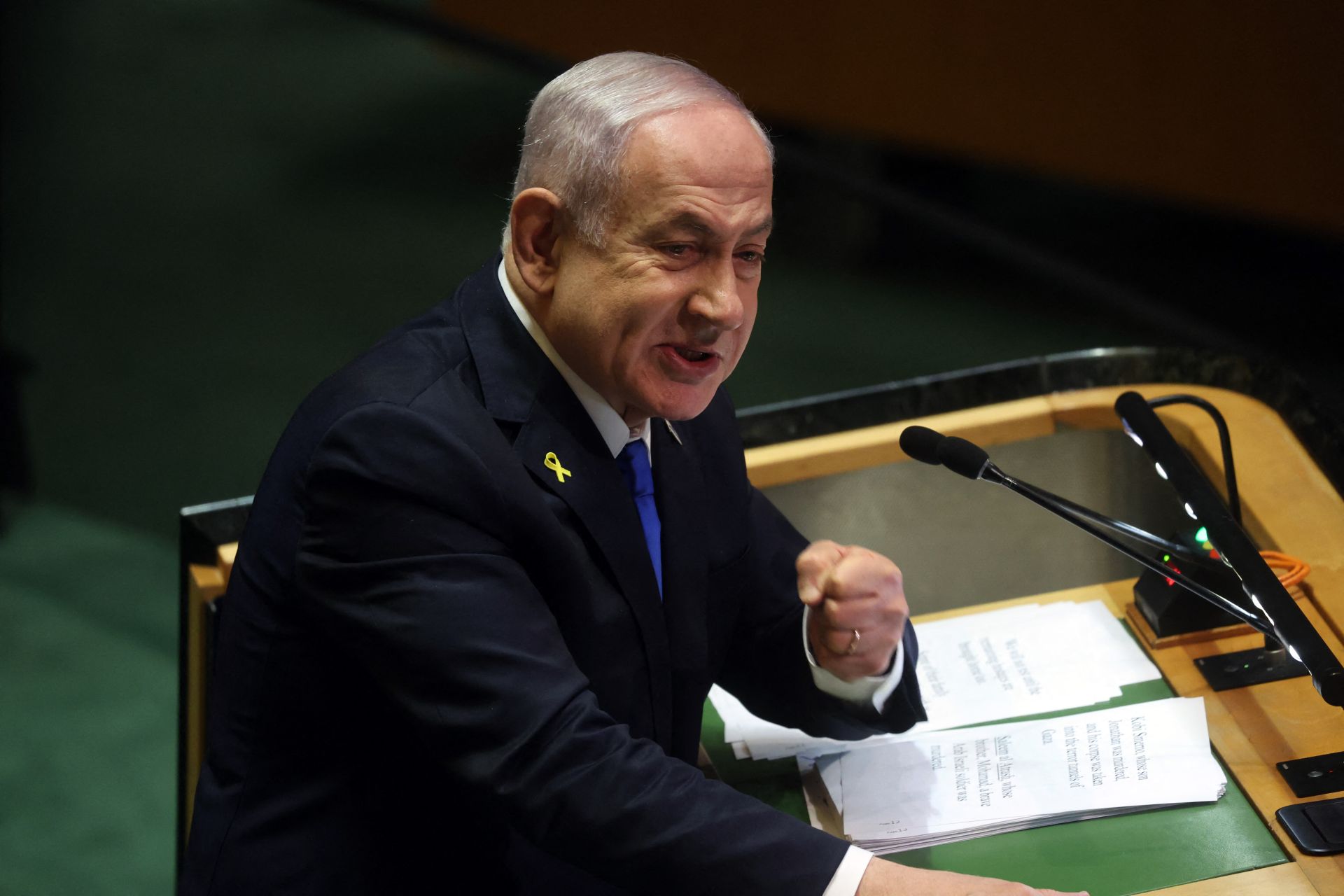
Israeli Prime Minister Benjamin Netanyahu on Monday vowed to strike Hezbollah without mercy, a day after the Iran-backed group's deadliest strike on Israel since the start of the war in late September.
Hezbollah's drone attack on an Israeli base killed four soldiers on Sunday, while another 60 people were injured, according to the Israeli volunteer rescue service United Hatzalah.
"We will continue to mercilessly strike Hezbollah in all parts of Lebanon –- including Beirut," Netanyahu said as he visited the base near Binyamina, south of Haifa.
Hezbollah said it launched the "squadron of attack drones" in response to Israeli attacks, including one last week that Lebanon's health ministry said killed at least 22 people in central Beirut.
Since Israel on September 23 escalated its bombing against targets in Lebanon the war has killed at least 1,315 people, according to an AFP tally of Lebanese health ministry figures, though the real toll is likely to be higher.
'Never-Ending' Strike
After almost a year of tit-for-tat exchanges between Hezbollah and Israeli forces over the Lebanon border, Israel intensified its strikes against targets in Lebanon late last month before sending ground troops across the frontier.
Israel wants to push back Hezbollah in order to secure its northern boundary and allow tens of thousands of people displaced by rocket fire over the last year to return home safely.
The International Organization for Migration said last week it had verified 690,000 displaced people in Lebanon.
Israel's deadly air strike on the village of Aito in northern Lebanon on Monday marked a departure from the usual pattern, being located far from the main combat area and in a mostly Christian area.
Israel has focused its firepower mostly on Hezbollah strongholds in Shiite Muslim-majority areas in the south and in the suburbs of Beirut.
An AFP photographer in Aito said the missile levelled a residential building. Body parts were scattered in the rubble.
In the southern border town of Marjayoun, civil defense chief Anis Abla told AFP his rescue teams were exhausted.
"Our rescue missions are becoming more and more difficult, because the strikes are never-ending and target us," he said.
Lebanon's health ministry condemned Israel's "continued targeting of medical, relief and paramedics teams."
Israel also continues to face criticism over injuries and damage sustained by the UN peacekeeping force which has been deployed in Lebanon since 1978.
Five peacekeepers were injured in a series of incidents last week, with the UN force on Sunday accusing Israeli troops of breaking through a gate with two tanks and entering one of their positions.
The Israeli military said a tank "backed several meters into a UNIFIL post" while "under fire" and attempting to evacuate injured soldiers.
Anti-Missile Defense
Prime Minister Simon Harris of Ireland, which has troops in the UNIFIL mission, on Monday, told Israeli President Isaac Herzog in a phone call that UNIFIL has "a clear mandate from the Security Council and that it must be allowed to carry out its functions unimpeded," Harris's office said.
Just before Sunday's attack on the Israeli army base, the Pentagon said it would deploy a high-altitude anti-missile system known as THAAD to Israel to further boost its ally's defenses against a potential Iranian attack.
Israel is still weighing its response to an October 1 missile attack by Iran, the latest of two it has carried out against Israel this year.
Aya Iskandarani and Jay Deshmukh in Jerusalem with AFP



Comments